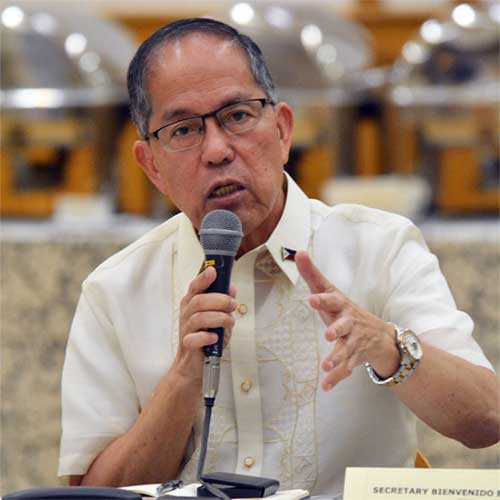
By Dolly Yasa
BACOLOD CITY — Department of Labor and Employment Secretary Bienvenido Laguesma dismissed for prematurity and lack of cause of action the complaint of the Ceneco Union of Rational Employees (CURE) that the execution of the Joint Venture Agreement (JVA) between Ceneco and Primelectric Holdings violates the union members’ right to security of tenure.
Laguesma, in an order dated May 3, a copy of which was furnished to reporters here during the weekend, also denied the motion to dismiss filed by CURE president Marbie Cabardo on the grounds that the notice to strike, which gave rise to the dispute, is invalid.
The DOLE Secretary also dismissed for lack of merit the complaint of unfair labor practice filed by CURE against Ceneco general manager, Atty. Arnel Lapore, and also dismissed for lack of factual and legal basis their claim for moral and exemplary damages.
The case stemmed from the labor dispute between Ceneco management and CURE, the sole and exclusive bargaining agent of the Ceneco rank-and-file employees.
In their complaint, CURE president Cabardo claimed the JVA would allegedly result in the termination of employment of all members and officers of the union and that the unfair labor practice allegedly committed by Ceneco when it intervened in internal union matters.
On the JVA, Laguesma said the execution of the JVA between Ceneco and Primelectric Holdings Inc. does not constitute a violation of union members’ right to security of tenure.
He stated that in entering into a JVA, Ceneco made a management decision to cease operation and accordingly started to dispose of or transfer assets to the National Electrification Administration (NEA) as its joint venture partner in the manner described by law and under the authority and supervision of the NEA.
The execution of the JVA does not immediately terminate the employment of Ceneco’s employees and is but a part of the process that also includes the conduct of a plebiscite among Ceneco’s member-consumers and attainment of the requisite majority support, the approval of the transfer by NEA, and the passage of a new legislative franchise in favor of NEPC. It is only after the transfer has taken effect that the employment of Ceneco employees, including the members of the union, will be terminated.
The decision further stated that Ceneco has not committed any positive or overt act of termination that would support a claim that the right of its members to security of tenure has been violated.
It also stated that the union’s claim that Ceneco violated the right of its members to security of tenure has not ripened into an actual cause of action, and at this stage, a decision on this issue would be premature and unfounded.
The decision also indicated that the company did not commit acts of interference constituting unfair labor practice, and the union’s claim that Ceneco committed acts of unfair labor practice cannot be sustained.
Regarding the union’s claim for moral and exemplary damages, the decision noted that the reliefs prayed for are premised on a finding that Ceneco committed unfair labor practice and violated the union members’ right to security of tenure. Since neither unfair labor practice nor violation of employees’ right to security of tenure has been established by substantial evidence, it follows that there is no factual and legal basis to grant the union’s claim for moral damages.





















